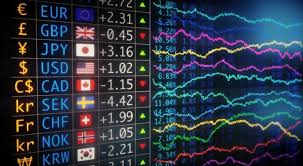Understanding Forex Trading Scams How to Protect Yourself 1839479829
octubre 28, 2025 9:22 am Deja tus comentarios
Forex trading has become increasingly popular in recent years, attracting individuals looking to make a profit. However, the rise in interest has also led to a surge in forex trading scams Turkish Trading Platforms and scams targeted at traders. Understanding these scams and how to recognize them is crucial for anyone stepping into the world of Forex trading.
What Are Forex Trading Scams?
Forex trading scams are deceptive practices designed to defraud individuals looking to trade in foreign exchange markets. These scams can take various forms, from fraudulent brokers to Ponzi schemes and misleading advertisements. They exploit inexperienced traders’ naivety and can lead to significant financial loss.
Types of Forex Trading Scams
There are several common types of Forex trading scams that investors should be wary of:
- Phony Brokers: These are unregulated or fraudulent brokerage firms that promise high returns but ultimately lead to financial loss.
- Signal Selling Scams: Some individuals claim to provide winning trading signals for a fee, but many cannot deliver on those promises.
- Pyramid Schemes: Often masquerading as investment opportunities, these schemes require participants to recruit others, ultimately leading to unsustainable profit structures.
- High-Pressure Sales Tactics: Scammers use aggressive marketing strategies to pressure victims into making hasty investment decisions.
- Cold Calls: Many scams start with unsolicited calls where scammers offer high-return investments in Forex trading.
Red Flags to Look Out For
Identifying scams before investing is essential. Here are some red flags to watch for:

- Unregulated Brokers: Always verify if the broker is regulated by a recognized authority.
- Too Good to Be True Offers: Be cautious of promises of high returns with little risk.
- Lack of Transparency: Genuine brokers provide clear information about fees, spreads, and the risks involved in trading.
- Pressure to Act Quickly: Scammers will often push you to make quick decisions, which is a significant red flag.
- Poor Reviews and No Reputation: Conduct thorough research about the broker or trading platform; look for reviews from genuine users.
Protecting Yourself from Forex Trading Scams
To safeguard your investment and avoid Forex trading scams, consider the following strategies:
- Do Your Research: Before investing, research the broker or platform, check its regulatory status, and look for user reviews online.
- Start Small: If you’re uncertain about a broker, test them with a small amount of money before committing larger sums.
- Be Skeptical of Unsolicited Offers: If you receive a cold call or unsolicited message regarding investment opportunities, proceed with caution.
- Educate Yourself: Learn about Forex trading and the risks involved. The more you know, the less likely you are to fall victim to scams.
- Use Official Channels: Stick to well-known, regulated platforms for trading and avoid unknown or unverified websites.
Reporting Forex Scams
If you believe you have been a victim of a Forex scam, it is essential to report it. Here are some steps to take:
- Contact Regulatory Authorities: Report fraudulent brokers to your country’s financial regulatory body.
- Notify the Police: If you’ve lost a significant amount of money, file a report with the local authorities.
- Share Your Experience: Post reviews or warnings about fraudulent brokers on forums and websites dedicated to helping traders.
Conclusion
Forex trading offers significant opportunities, but it also presents risks, especially in the form of scams. By understanding the various types of scams, recognizing red flags, and implementing protective measures, you can engage in Forex trading more safely. Always stay informed and vigilant, as the best defense against fraud is knowledge and awareness.
Categorizado en: traiding2
Esta entrada fue escrita porPELCAN
